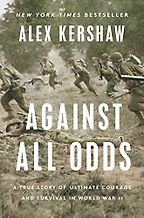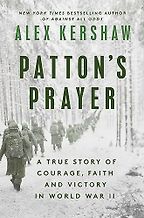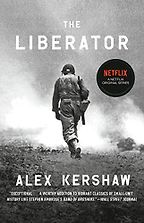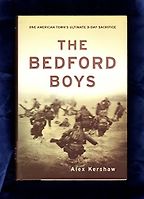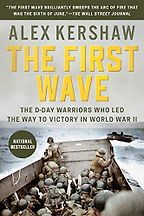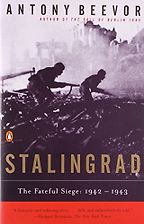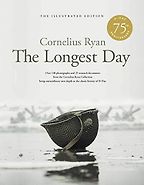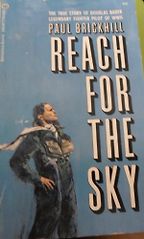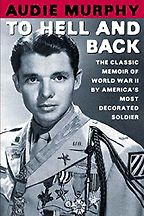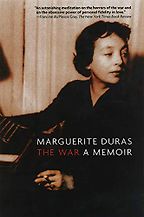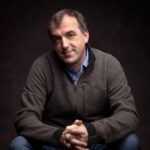
©Howard Sokol
Books by Alex Kershaw
Alex Kershaw is a British historian and author of a number of prizewinning, New York Times bestselling books. He is also the resident historian of the Friends of the National World War II Memorial in Washington, D.C., leading tours to World War II sites in Europe (The next one will be in May 2024).
“You’d be very hard-pressed to find someone who saw as much combat in the critical battles in the liberation of Western Europe, and experienced as much of the grit and the grime and the horror of war, as Audie Murphy. He had an extraordinary ability to lead. He’s about as close as you can come to an effective predator, in a uniform, in the US Army, in World War Two. He was extraordinarily good at killing people and very good at not getting killed…I follow them not just to the end of the war, but afterwards. The last quarter of the book is post-World War Two. Audie Murphy had a very interesting second chapter of his life, being a movie star. He wrote a lot of country and western songs and starred in a lot of westerns. But he was deeply scarred by the war. He slept with a pistol under his pillow and had troubled relationships.” Read more...
The best books on World War II Battles
Alex Kershaw, Historian
Patton's Prayer: A True Story of Courage, Faith, and Victory in World War II
by Alex Kershaw
Patton's Prayer by Alex Kershaw is out in 2024 and is about the Battle of the Bulge (December 1944-January 1945), when thousands of Allied soldiers were killed in the Ardennes in Germany's last major offensive of World War II. For the Americans, it was the deadliest single battle of World War II, with around 19,000 dead and around 75,000 total casualties.
“Robert Antelme…was part of the French Resistance and was imprisoned in Dachau concentration camp. When I was researching The Liberator—which is a book that came out in 2012 about a guy who ended up liberating Dachau—I was looking for suitable characters that I could have in Dachau, as the liberating forces were approaching. I did a lot of research and found Robert Antelme, who was a really cool guy.” Read more...
The best books on World War II Battles
Alex Kershaw, Historian
“The Bedford Boys…was told from the point of view of a small unit—a company of less than 200 men—who fought on D-Day, but it was also told from the point of view of the families and loved ones of those men back in the US. In the book, I cut between Britain, Normandy, and Bedford, a small community in the heart of Virginia. It’ll be a chapter with the guys in Europe getting the training and ready to go and then I come back to the US. I develop the story pretty well in parts of it, so that you understand the cost to one community of that sacrifice on D-Day. So if you’re an American and you were to go and visit Normandy, The Bedford Boys is a recommendation that a lot of people would give you, as a book to read to understand D-Day on a very personal level. It’s not the massive broad picture that Cornelius Ryan presents very well. Although I tell the overall story of the day, I do it very much from the point of view of this unit of men from Bedford, Virginia. There were 34 of them on D-Day, and 19 of them were killed in the first hour or so of the invasion. That’s why Bedford Virginia is the place where they have the National D-Day Memorial in the US because it’s been estimated it’s the community that, per capita, had the highest loss of any Allied community on D-Day.” Read more...
The best books on World War II Battles
Alex Kershaw, Historian
“I also did another book about D-Day called The First Wave which was just an unashamed ‘Greatest Hits’ approach. I just picked my favorite guys from the Canadians, the Brits, the Americans and even a Frenchman. I decided, ‘I’m just going to tell this incredible story but tell it up close and personal from the point of view of my eight stars and really go to town.’ There wasn’t a lot that was enormously new but the angle there was somewhat innovative in that I took the combat leaders who were in action first, who had the most critical missions. They landed first—either from the air or the sea—and if they didn’t succeed in the first minutes or hours of D-Day, then the whole operation would have failed. So it was an interesting approach and I got to hero worship some really cool guys. There’s nothing wrong with hero worship when it comes to people who were prepared to die to save everything that we care about.” Read more...
The best books on World War II Battles
Alex Kershaw, Historian
Interviews with Alex Kershaw
-

1
Stalingrad
by Antony Beevor -

2
The Longest Day
by Cornelius Ryan -

3
Reach for the Sky: The Story of Douglas Bader, Hero of the Battle of Britain
by Paul Brickhill -

4
To Hell and Back: The Classic Memoir of World War II by America's Most Decorated Soldier
by Audie Murphy -

5
The War: A Memoir
by Marguerite Duras
The best books on World War II Battles, recommended by Alex Kershaw
The best books on World War II Battles, recommended by Alex Kershaw
In World War II human beings were tested over and over again, and that is part of what explains its enduring fascination, says bestselling historian Alex Kershaw. He recommends five books of great storytelling that immerse you in the drama, the heroism and the tragedy of World War II and also have the benefit of being relatively short.
Interviews where books by Alex Kershaw were recommended
-

1
Stalingrad
by Antony Beevor -

2
The Longest Day
by Cornelius Ryan -

3
Reach for the Sky: The Story of Douglas Bader, Hero of the Battle of Britain
by Paul Brickhill -

4
To Hell and Back: The Classic Memoir of World War II by America's Most Decorated Soldier
by Audie Murphy -

5
The War: A Memoir
by Marguerite Duras
The best books on World War II Battles, recommended by Alex Kershaw
The best books on World War II Battles, recommended by Alex Kershaw
In World War II human beings were tested over and over again, and that is part of what explains its enduring fascination, says bestselling historian Alex Kershaw. He recommends five books of great storytelling that immerse you in the drama, the heroism and the tragedy of World War II and also have the benefit of being relatively short.
